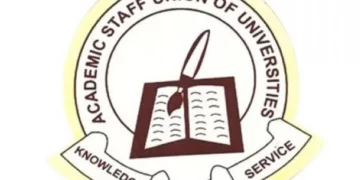Across Nigeria’s tertiary institutions, the crisis of student accommodation has long been a quiet emergency. Overcrowded hostels, dilapidated buildings, and the high cost of off-campus housing have painted a bleak picture of student life until now.
To curb this ugly trend, the Tertiary Education Trust Fund (TETFund) initiated a transformative partnership model that aims to tackle the student housing crisis head-on.
With the introduction of a Public-Private Partnership (PPP) framework, TETFund is calling on institutions to rethink how they provide safe, affordable, and modern housing for students.
At a recent one-day strategic engagement with heads of institutions, bursars, and heads of procurement of the Fund’s beneficiary institutions, the Executive Secretary of TETFund, Arch. Sonny Echono, welcomed participants and highlighted TETFund’s commitment to collaboration, transparency, and improving tertiary education in Nigeria.
He encouraged universities to partner with private developers for hostel construction, saying TETFund offers seed funding of ₦1 billion, while the developer provides 75% of the cost.
According to him, TETFund’s 2025 directive focuses on new infrastructure rather than rehabilitating old facilities, to prevent mismanagement and maximise impact.
He added that a new fund will support student innovation and entrepreneurship, aiming to reduce reliance on traditional jobs and foster self-employment.
Echono emphasised the importance of Public-Private Partnerships (PPP) in hostel development for educational institutions.
He said some institutions have already begun such projects, including a 1,600-bed facility in Lagos, stressing that better on-campus accommodation enhances student welfare, safety, and parent confidence while reducing risks associated with students living off-campus.
He therefore encouraged institutions to enter joint ventures with developers, agree on post-construction management plans, ensure students pay accommodation fees alongside other charges, and consider generating modest revenue or keeping costs low for students.
Echono said private sector involvement in education (hostels, shopping areas, services) is globally standard and necessary to modernise campus infrastructure. He acknowledged challenges with existing, aging hostels and the limitations institutions face in charging fees due to public resistance, despite rising maintenance costs.
Ultimately, the ES said engaging the private sector will reduce institutional burdens, offer better facilities, and strengthen community and alumni partnerships, all while improving the overall student experience.
“Which is why we are promoting things like PPP models in your hostel development. We as a Fund, again, are concerned and even surprised that despite the open offer to all of you to go and look for PPP partners for the development of hostels, very few have been able to do so.
“The framework is clear. Just get any partner at your discretion, we are not giving you a partner. Get any partner willing to commit three quarters of the required funding. We have set that benchmark to about four billion currently. So the developer should be able to mobilize 75% of that fund. As a mark of your own commitment, you will bring one billion.
“That one billion is not coming from your resources. TETFund is bringing that one billion to support you to be able to consummate that partnership. So you do not need to make financial commissions for you to get this large hostel.
“So your obligation is to provide land in your school, which you already have, all of you have. You agree with the partner. They, apart from bringing funds, will also arrange for the development, that’s when they are developers.
“Your agreement is for the post-construction management. Are you going to have a separate facility manager? Is the school empowered enough to handle the facility management? Is it a joint matter of routine and planned management? You have something you agree with the partner. You will guarantee that the facility will be good to use, because you will offer it to your students.”
“I recall when I met with the president, he was talking to me about a video he saw in one of our universities. Of hostels, they are looking like big houses. And to quickly tell you, because you see, you believe that you guys are doing very well, but it’s not. And I said, no, sir.
“You are still going to have this. No matter how much effort, best efforts we make, because we are building new hostels. These are old hostels that some of us even stayed years back. So, except we do something about it, these older ones will remain like this.
“And I told him the truth. That the reason they are like this is because no head of institution, none and I know that, even when you don’t say it, is happy with the scenario they find themselves. They cannot charge anything. When you say 30,000, 40,000, people will start harassing you. But you have to pay for electricity.
“You don’t have students who use energy. You have to pay for water. You have to pay for cleaning. You have to pay for security for those hostels. Then the maintenance, changing facilities, and all that,” he added.
Also speaking, Paulinus Okwelle, Executive Secretary of the National Commission for Colleges of Education (NCCE), expressed sincere appreciation to the management of TETFund for consistency in convening this platform for dialogue, collaboration, and strategic planning among beneficiary institutions.
In particular, he commended TETFund for expanding the scope of participants to include bursars as well as heads of procurement in institutions because of the critical role they play in the execution of TETFund projects.
“Taking cognisance of the vital role that our beneficiary institutions play in shaping the future of Nigeria’s educational landscape, it is our collective goal to ensure that our institutions of learning continue to produce competent, innovative, and morally upright guidance for the next generation of Nigerians.
“Thank God for the good work TETFund is doing across all our public institutions in Nigeria. And this opportunity given to us today, we expect a lot of time to tell also many things, and I believe this opportunity to be able to also ask questions, clear some areas that are quite difficult to understand, and at the end of the day, I believe that we will not go back the way we came at the end of this success.
“I urge all the heads of institutions, together with the bursars and heads of procurement, who are professionals in their fields, to work together and embrace best practices of holding decency and fostering a culture of excellence in the management of funds and resources being released to us by TETFund.
“I want to let you know that our collective commitment is crucial in ensuring that investments made through TETFund translate to tangible improvements in infrastructure, curriculum delivery, institutional development, and student outcomes.”
He reaffirmed the commitment of the National Commission for Quality Education to support and collaborate with TETFund and all other stakeholders to advance the cause of quality teacher education in Nigeria.
“Our resolve is to seize international opportunity provided and sustained by the present government of the day, led by His Excellency, President Bola Tinubu, to build a resilient, innovative, impactful, and sustainable television system that meets the needs of our beloved country.”





